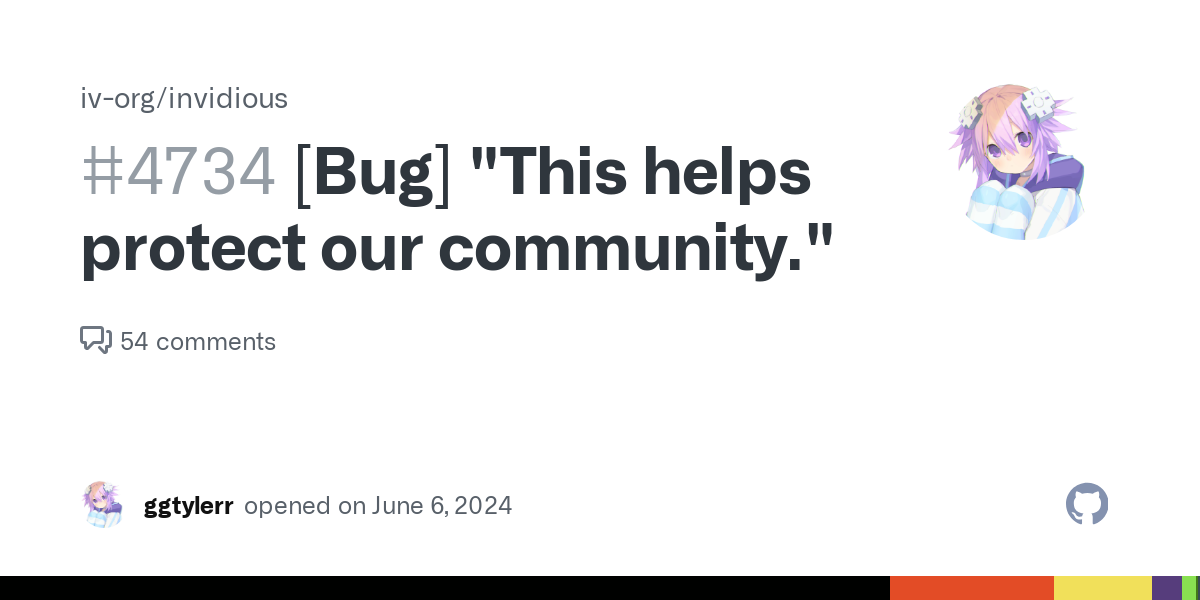- cross-posted to:
- degoogle@lemmy.ml
- cross-posted to:
- degoogle@lemmy.ml
cross-posted from: https://discuss.tchncs.de/post/22423685
EDIT: For those who are too lazy to click the link, this is what it says
Hello,
Sad news for everyone. YouTube/Google has patched the latest workaround that we had in order to restore the video playback functionality.
Right now we have no other solutions/fixes. You may be able to get Invidious working on residential IP addresses (like at home) but on datacenter IP addresses Invidious won’t work anymore.
If you are interested to install Invidious at home, we remind you that we have a guide for that here: https://docs.invidious.io/installation/..
This is not the death of this project. We will still try to find new solutions, but this might take time, months probably.
I have updated the public instance list in order to reflect on the working public instances: https://instances.invidious.io. Please don’t abuse them since the number is really low.



Well, we start by referring ta work not as “content”, but as what it actually is. Then work from there. For instance, one could ostensibly call Ahoy a filmmaker or a documentary maker.
… Which is a type of content.
There’s a lot of content that doesn’t fit neatly into a category though, because it was made by someone turning on a camera and making a video without worrying about any commercial concerns. So calling someone like that a creator is a catch all term for anyone making content for a platform.
But don’t you think it’s a bit reductionist? We read books, not analogue text content. We eat meals, not nutritional content. We listen to songs, not rhythmic euphoria content. I don’t think it’s about commercial concerns - in fact, the term ‘content’ to refer to anything and everything is the ‘commercial’ way of putting it.
Someone hitting ‘record’ on a microphone and jamming on a guitar is still music. Why should we treat video any differently?
It’s a technical term, we may not use it in everyday conversation, but it is the correct term.